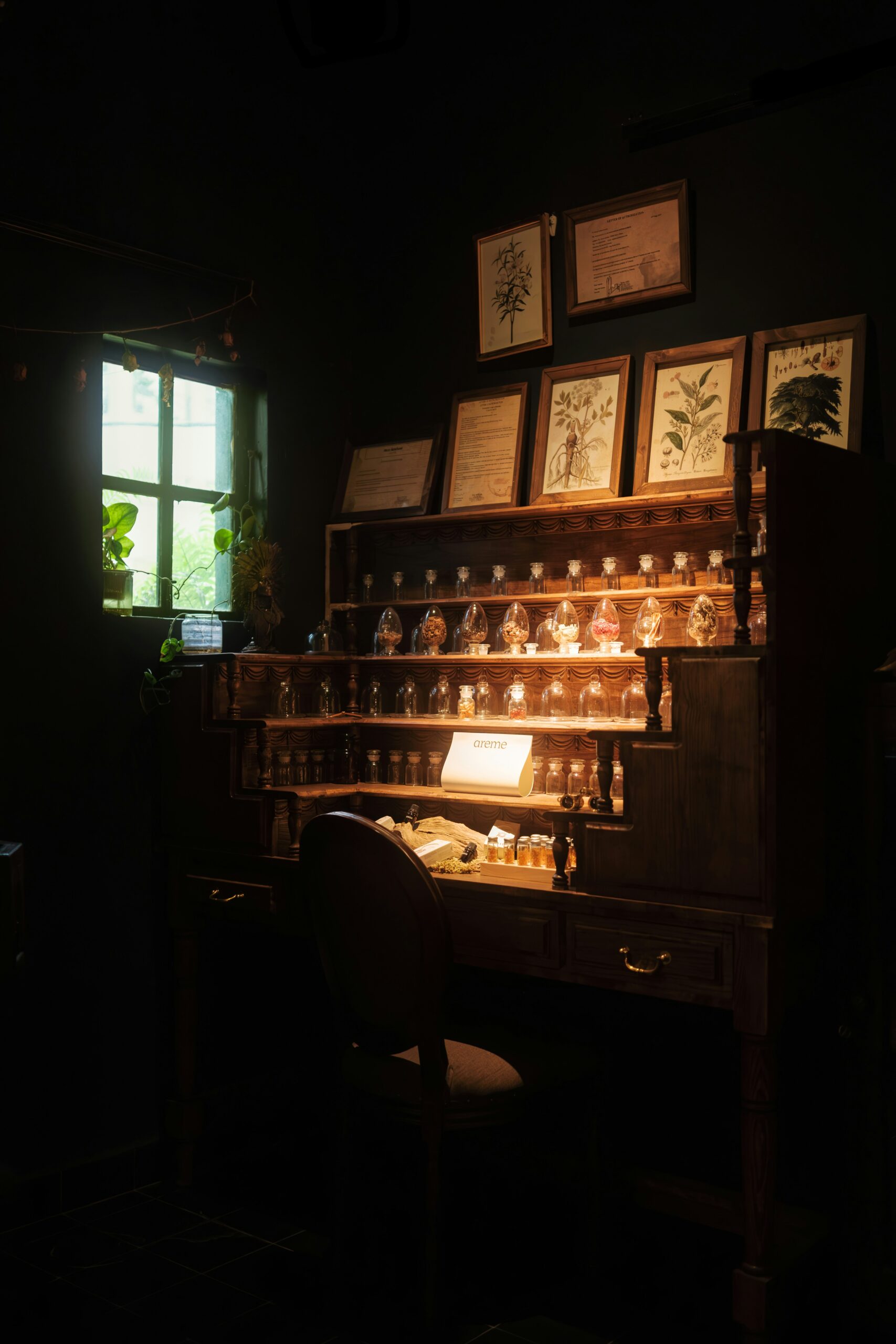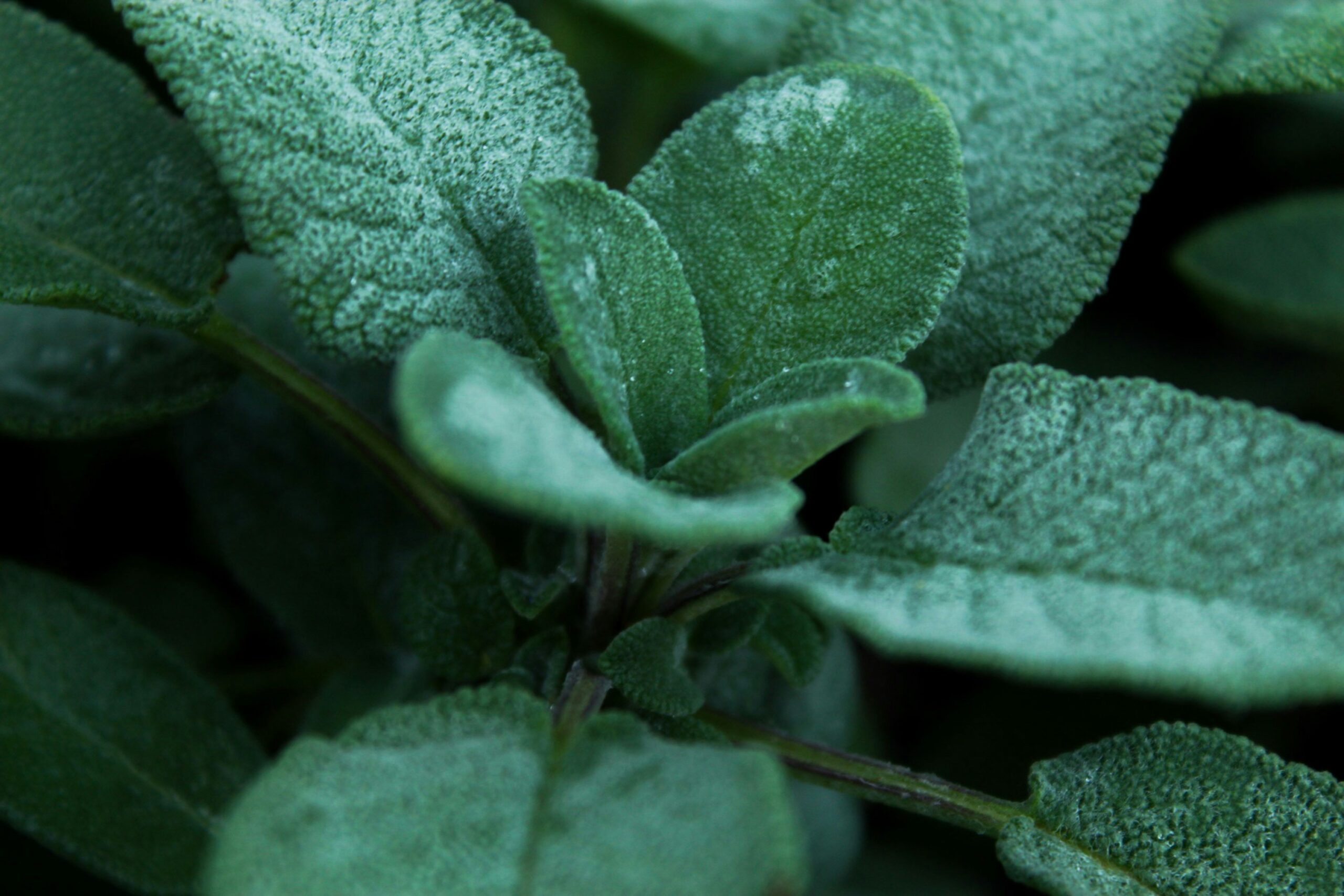There’s something special about creating your own sanctuary of plants, oils, and potions. A place where nature’s remedies meet your personal energy. A home apothecary isn’t just a collection of herbs and tinctures; it’s a practice of self-care, a connection to the earth, and a quiet ritual that reminds us we are capable of helping ourselves.
The Raven knows that wisdom comes from within. And so does your apothecary. You don’t need to rely on commercial pharmacies or pre-made concoctions; everything you need is already growing around you, waiting to be harvested, dried, blended, and transformed into powerful tools for wellness.
The Basics: Tools of the Trade
Before embarking on your herbalism journey, gather a few essential tools. These will help you create, store, and prepare your remedies with ease.
- Glass Jars and Bottles: Glass is the purest and most effective material for storing your herbs, tinctures, and oils. Avoid plastic, which can leach chemicals into your creations. Invest in a variety of sizes for different uses. Canning jars are my personal favorites and come in a ton of different sizes!
- Herb Grinder: Let’s get real. I LOVE my mortar and pestle. The way it feels in my hand and the connection I feel with the herbs. It works great for small jobs, but when I’m making things like large infusions with a lot of plant matter, an herb grinder or food processor does the trick! The finer you grind your herbs, the better the extraction! **Just be sure to strain your final product really well.
- Strainers and Cheesecloth: These are essential for straining out herbs when making pretty much everything. Running your creations through a cheesecloth or muslin bag ensures that little to no plant matter ends up in your finished product. A fine-mesh strainer will be your best friend for achieving the desired end result. *Remember to wash your cheesecloths and muslin bags separately from other laundry to avoid transferring oil stains!
- Mixing bowls and utensils: Stainless steel mixing bowls are perfect for blending herbs, stirring salt scrubs, or prepping ingredients. They’re durable, non-reactive, and easy to keep clean. When it comes to spoons, stainless steel utensils all the way. And of course, a good set of measuring cups and spoons ensures consistency in your creations, especially when you’re building recipes to return to again and again. I definitely recommend keeping a set just for your herbal work, because once you’ve scooped ashwagandha and shea butter, they won’t want to go back to the flour jar!
The Essentials: Starter Herbs
Now, let’s talk herbs. Keep it simple and start with herbs that have a wide range of uses. You can (and you will) expand your collection over time. I’ve never met a single person who began with a few herbs and stopped there! It is addictive! These herbs will form the foundation of your healing toolkit, and each one brings its own magic.
- Lavender (Lavandula angustifolia): The gentle healer. While most people are familiar with lavender for its calming effects, which can help ease stress, anxiety, and insomnia, its benefits extend far beyond the nervous system. Sore muscles? A lavender oil massage can bring soothing relief. Lice is going around at school? Mix a few drops of lavender essential oil with coconut oil, apply it to the scalp, wait for an hour, rinse, and then comb. Fighting off a cold, sore throat, or congestion? Add a few drops to your vaporizer and let the soothing scent work its magic. Lavender is truly a multi-purpose ally in any home apothecary. *Magical use: love, peace, protection, and purification
- Peppermint (Mentha piperita): With its bold, invigorating scent, peppermint practically announces itself in the garden – you’ll smell it before you see it. But this herb is far more than just a refreshing flavor. Peppermint tea has long been used to soothe indigestion, calm an upset stomach, and support liver health. When blended with a carrier oil, such as olive or coconut, peppermint extract can be gently massaged into the skin to help ease menstrual cramps, headaches, and even arthritis pain. *Magical uses: cleansing, attraction, purification
- Chamomile (Matricaria chamomilla): Widely known for its calming properties, chamomile has been used for centuries to ease both body and mind. I am absolutely in love with its intoxicating, fruity scent and gorgeous, mustard-yellow color. I mainly use it as a remedy for digestive discomfort, and skin issues like eczema. *Magical use: peace, relaxation, and emotional balance
- Echinacea (Echinacea angustifolia): This gorgeous “purple coneflower” is called upon at the first whisper of illness in my home. Its spiky-petaled bloom holds potent antiviral and anti-inflammatory powers. By stimulating the body’s natural immune response, Echinacea can assist in shortening the duration and severity of a cold. It tastes delicious as a tea, especially when mixed with a bit of lavender, but I also keep a tincture of it on hand for those extra nasty bugs! *Magical use: strength, protection, and healing
- Rosemary (Rosmarinus officinalis): Rosemary is one of those herbs that seems to carry the wisdom of the ages. Its sharp, earthy scent is unmistakable, and it’s not just for the kitchen. Rosemary is a powerful ally for both physical and mental health. On one side, it can help relieve muscle pain, ease respiratory issues, and stimulate circulation. On the other hand, it can help keep you grounded and improve memory fog. Rosemary’s versatility makes it a strong addition to any apothecary. *Magical use: mental focus, protection, and clarity.
- Lemon Balm (Melissa officinalis): This gentle lemony-scented herb is like a good friend in plant form. Often overlooked, lemon balm shines brightest when you need emotional balance and support for your nervous system. It has been traditionally used to ease anxiety, lift spirits, and promote calm sleep. Its antiviral properties make it a smart choice during cold season, especially when blended with other immune-boosting herbs like echinacea. *Magical use: joy, healing, emotional clarity, and harmony
You Make the Rules—and the Magic
When learning about herbs, I highly encourage purchasing a few books for guidance. Just never forget that your intuition is your best friend. Books are a fantastic tool, but your own experiences with plants will teach you more about their subtle energies and how to incorporate them into your daily routine.
Creating your home apothecary is a magical moment! You’re taking the first steps to caring for yourself and your family the way the Earth intended. Some herbs will call to you more than others. Some will seem to appear out of nowhere, waiting for you to use them in your next remedy. Start small. Let your collection grow as you learn and expand. Stay open, and trust the process. Your apothecary will evolve with you, one herb at a time.
🖤Raven & Sage
Disclaimer:
The information provided on this blog is for educational and informational purposes only and is not intended as medical advice. Always consult with a qualified healthcare provider before beginning any herbal treatments or health practices. Raven & Sage is not responsible for individual outcomes or reactions to herbs or remedies discussed. Full Disclaimer


